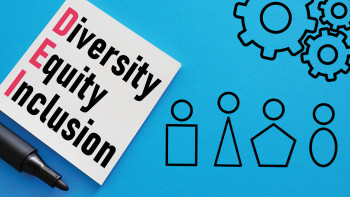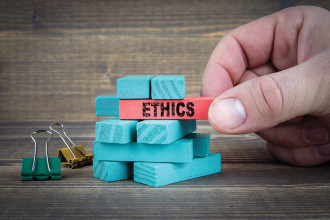
The Asian tiger has turned sheepish. Gone are the roar and the swagger. Shame and embarrassment mark its new demeanour.
South Korea’s political and business image has taken a severe beating following the ouster of its President Park Geun-hye this month on March 10. Brazen violation of the basic tenets of political decorum and corporate governance has cost the Asian economic powerhouse dear.
Shocked by wanton financial impropriety by the country’s top political leadership in cahoots with leading family-owned business conglomerates, popularly known as chaebols i.e. dynasty, hundreds of thousands of South Koreans found themselves compelled to protest in streets and squares time and again.
Unholy alliance
The unholy alliance between the ruling political class and big business has been a way of life in South Korea that not till so long ago was ruled by despotic military regimes. In fact, Geun-hye’s father used to be the country’s military dictator till 1974.
Though South Korea rose like a phoenix from the devastating Korean War (1950-53) to become one of Asia’s leading economic powers, pay-to-play has been the leitmotif of the politics-business bond in the Korean peninsula. Failure to keep the political brass in good humour can cost companies business opportunities, growth and perhaps even survival.
Top chaebols like Samsung, Hyundai, LG, SK, Lotte, Daewoo, GS Group, Hanjin, Doosan, etc. which have their fingers in far too many money-minting pies ranging from shipping, automobiles, electronics, telecom, petro-chemicals, energy, steel, insurance to even restaurant and burger chains, practice the pay-to-play principle which has somehow become deeply entrenched in the Korean psyche.
A socio-psychological autopsy of the chronic malaise in South Korea’s highly hierarchy-driven society with extreme concentration of economic power by the chaebols warrants a separate discussion. Let that wait for some other time.
Yet, protests by the people, particularly the younger lot, and some tough-as-nails government prosecutors have ensured that the culprits are pinned down regularly. No wonder, president after president has fallen prey to major financial scandals involving the country’s corporate behemoths in the three decades of democratic era in South Korea.
Bungling, tumbling presidents
However, the earlier times of despotic rule had created a culture of give and take. It had triggered “the impulse to pay bribes, regardless of the official’s wishes, knowing that the official will feel obligated to return the favour.”
Though President Kim Dae-jung (1998-2003) was himself found unblemished, two of his sons were put behind the bars for taking bribes. President Roh Moo-hyun (2003-08) chose to end his life after leaving office when he found official investigators closing down upon him for allegedly accepting $ 6 million as graft. President Lee Myung-bak (2008-13) had to tender apology after his elder brother was sentenced to two years’ imprisonment for accepting $ 500,000 from businessmen in return for favours from the government.
And on March 10, 2017, Park Geun-hye emerged as the latest link in South Korea’s sordid chain of breach in governmental and corporate governance, deceit and all round infamy. She let herself be virtually mesmerised by a female Rasputin, Choi Soon-sil, to coerce around 50 companies, including mighty chaebols like Samsung, Hyundai and LG to donate $ 53 million to foundations controlled by the mystifying Choi.
However, it would be naïve to assume that no return was expected for the squeezed favours by the affected corporates though all erring parties would have the world believe that. Favours are expected to be remembered and returned in the South Korean system.
Yet the new generation’s stress on political probity and corporate integrity is ushering in a novel awareness and sensitivity in sections of the society.
No wonder, Park’s popularity ratings plummeted to an all-time low of five per cent in the wake of Choi-gate as the scandal has come to be known.
(By the way, the mysterious Choi is a daughter of a religious figure, Choi Tae-min, who was quiet thick with Park’s father Park Chung-hee, the military dictator who ruled the country for 18 years, till his assassination in 1974).
Samsung in a soup
The sinister drama had started unfolding even before President Park’s unceremonious ouster. Samsung’s de-facto head Lee Jae-yong was arrested on February 16, 2017, for bribery and embezzlement. He has been accused of paying $ 36 million to certain non-profit bodies run by the enigmatic Ms Choi. Samsung’s Lee has, as expected, denied any wrongdoing. He perhaps feels that history shall repeat itself. There are instances galore of political biggies in Seoul rescuing chaebols and their bosses from sticky spots. And then isn’t Samsung perched on the pinnacle of South Korea’s chaebol-dom?
Relationships, obviously, matter more than sacrosanct political and business norms in South Korea. Corrupt collusion between the state and big business seem to be par for the course in the country’s polity. Politics and business cannot be compartmentalized in these times. But the problem arises when the two start cohabiting too vigorously. The outcome does little sustainable good to either and certainly not to competition, clean politics and fair business.
World Bank view
A November 2016 report by the World Bank Group highlights the damage corruption does to development, growth and poverty eradication. Though the World Bank’s concerns are focussed more on the underprivileged sections of the society, the following extract makes a point pertinent to our discussion here: “About $1 trillion is paid each year in bribes around the world, and the total economic loss from corruption is estimated to be many times that number. This figure dwarfs the value of all development assistance. The harm that corruption causes to development is, in fact, a multiple of the estimated volume, given the negative impact of corruption on the poor and on economic growth… In addition, corruption … contributes to higher-order crimes: when money is lost through illicit flows, it often finds its way across borders to fund drug and human trafficking. Its presence works to erode the social contract between citizens and the state.”
The report goes on to add: “Economic activity is similarly harmed by corruption – with corruption operating as a strong disincentive to foreign investment. Countries capable of controlling corruption are able to use their human and financial resources more efficiently, attract more foreign and domestic investment, and grow more rapidly. Recent research suggests that there is a 300 per cent dividend for improving governance from weak to strong…The Bank Group recognizes that corruption comes in different forms. It might impact service delivery, such as when police officers ask for bribes to perform routine services. It might unfairly determine the winners of government contracts, with awards favouring friends or relatives of government officials. Or it might affect more fundamental issues of how the institutions work – a form of corruption that is often the most costly in terms of overall economic impact. Each of these forms is important, and tackling them all is fundamental to achieving progress and sustainable change… Successful anti-corruption efforts are often led by a ‘coalition of concerned’ – by politicians and senior government officials, the private sector, and by citizens, communities, and CSOs (civil society organizations). Increasingly, addressing corruption will require the concerted attention of governments and businesses in the developed world… Much of the world’s highest-value corruption could not happen without institutions in wealthy nations: the firms that give large bribes, the financial institutions that accept laundered money, and the lawyers and accountants who facilitate corrupt transactions.”
The Group’s report has obvious hints and lessons for South Korea as well as Nepal. Though targeted against corruption across the globe, the report does mirror the scams and financial misdemeanours plaguing the country.
It, therefore, seems strange that South Korea is widely perceived as rather honest and transparent. The country ranked the 37th least corrupt out of 167 nations in the Corruption Perceptions Index 2015.
How does one explain this conundrum? Are South Korea’s major economic and industrial success and vastly improved general living conditions veiling the festering sore? After all, nothing succeeds like success. Or is it that the country cannot do without its chaebols which function as engines of growth? Has a symbiotic relationship evolved over the years between South Korea and its big business?
Chaebols’ clout
Kim Sang-jo, an economist at Hansung University in Seoul and expert on Samsung, seeks to explain: “To South Koreans, chaebols have two faces. On one hand, chaebols symbolise corrupt ties between business and politics, so people call for reforming chaebols. On the other hand, people fear that shaking them too much might make them collapse.”
The fear of collapse perhaps stems from the fact that the common South Korean has yet to understand and learn the working of modern globalised companies in other countries. For that matter, even General Motors of the US has gone bankrupt more than once and risen to do business. Unlike some of the South Korean chaebols it did not rush to the government to clear its debts and other liabilities. And the heavens did not fall for the US where such ups and downs are routine.
But the paternalistic and proprietary attitude of the chaebols towards employees has robbed South Koreans of venturesome-ness and initiative. However, this scenario cannot be over stretched to question efficiency, commitment and productivity of South Korean worker and managerial classes. They come up trumps on all counts.
Yet the current spread and clout of the chaebols cannot be undermined. The top five chaebols accounted for 58 per cent of South Korea’s gross domestic product in 2015, up from 37 per cent in 2008. How dare the politico destabilise the tycoon then?
Therein lies South Korea’s moral dilemma, much like ours in Nepal. No doubt, our scenario is worse given the vast disparity in our economic status. Nepal cannot afford to suffer such jolts. We need to be wary about the way we conduct our politics and business.
 Basant Chaudhary is a Poet, Writer, The Chairman of BLC and Basant Chaudhary Foundation. ([email protected])
Basant Chaudhary is a Poet, Writer, The Chairman of BLC and Basant Chaudhary Foundation. ([email protected])
 Basant Chaudhary is a Poet, Writer, The Chairman of BLC and Basant Chaudhary Foundation. ([email protected])
Basant Chaudhary is a Poet, Writer, The Chairman of BLC and Basant Chaudhary Foundation. ([email protected])
Published Date: May 2, 2017, 12:00 am
Post Comment
E-Magazine
RELATED Business Sutra





